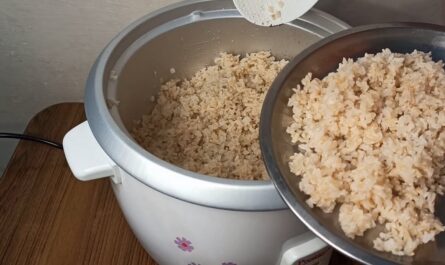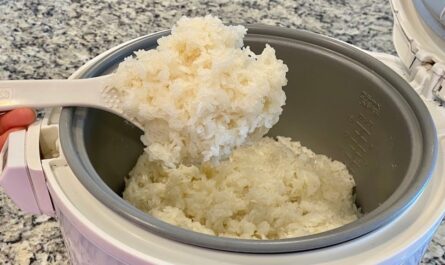When it comes to sushi, the choice of rice matters significantly, not only for taste but also for health implications. For sushi lovers, understanding the black rice glycemic index can be a game-changer. It’s crucial to know how this variety of rice can impact your health, especially if you are mindful of blood sugar levels.
The black rice glycemic index is a measure of how quickly carbohydrates in black rice are converted into glucose in the body. This is essential for anyone monitoring their blood sugar levels, particularly those with diabetes or those following a low-glycemic diet. By choosing foods with a lower glycemic index, you can help maintain a more stable blood sugar level, which is beneficial for overall health.

What is Glycemic Index?
The glycemic index (GI) is a ranking system for carbohydrates based on their effect on blood glucose levels. Foods are rated on a scale from 0 to 100, with higher values indicating a more rapid increase in blood sugar levels. Understanding the GI of different foods can help you make healthier dietary choices.
Introducing Black Rice
Black rice, also known as forbidden rice, is a type of rice that is rich in antioxidants, fiber, and iron. Its distinct dark color comes from the high anthocyanin content, which is a powerful antioxidant. Historically, it was reserved for Chinese royalty due to its nutritional benefits and rarity.
Nutritional Benefits of Black Rice
Black rice is packed with nutrients that are beneficial for health. It is an excellent source of protein, fiber, and minerals such as iron and copper. The high antioxidant content helps in reducing inflammation and protecting against certain diseases.
How Does Black Rice Compare to Other Rice Types?
When compared to white rice, black rice has a lower glycemic index, which means it doesn’t spike blood sugar levels as quickly. This makes it a healthier choice for those looking to manage their weight or control diabetes. For more on choosing the right rice for sushi, visit choosing sushi rice.
Black Rice Glycemic Index in Sushi
Sushi lovers can benefit from incorporating black rice into their recipes. The lower glycemic index means more stable energy levels and reduced sugar crashes after meals. This can enhance the overall dining experience without compromising on taste.
Creating Healthier Sushi
Using black rice in sushi can be a delicious and nutritious alternative to traditional sushi rice. To learn more about how to make perfect sushi rice every time, you can visit sushi rice thermometer.
Black Rice and Weight Management
Due to its high fiber content, black rice can help in weight management. The fiber aids in digestion and keeps you feeling full longer, reducing the likelihood of overeating. For more insights on how black rice can aid in weight loss, check out black rice weight loss.
Black Rice vs. Medium Grain and Arborio Rice
While medium grain and Arborio rice are popular choices for various dishes, black rice offers unique health benefits. Its lower glycemic index makes it a preferable option for those monitoring their blood sugar. Learn more about these rice types at medium grain rice and Arborio rice.
Incorporating Black Rice in Your Diet
Adding black rice to your diet can be simple and rewarding. It can be used in a variety of dishes, from salads to desserts, and of course, sushi. Experimenting with this nutrient-rich rice can provide both health benefits and culinary satisfaction.
Cooking Black Rice
Cooking black rice requires a bit more time than white rice, but the health benefits are worth the effort. Rinse the rice thoroughly, soak it for a few hours, and then cook it with a ratio of 1:2.5 of rice to water for optimal results.
Conclusion
The black rice glycemic index is an important consideration for anyone looking to make healthier dietary choices, especially sushi lovers. By incorporating black rice into your meals, you can enjoy delicious food while reaping numerous health benefits. For a deep dive into the health advantages of black rice, visit health benefits of black rice.

FAQ
Is black rice better for diabetics?
Yes, black rice has a lower glycemic index compared to white rice, making it a better option for managing blood sugar levels.
How does black rice taste in sushi?
Black rice has a nutty, slightly sweet flavor that pairs well with sushi ingredients, offering a unique and delicious alternative.
Can I substitute black rice in any recipe?
While black rice can be used in various recipes, it is important to note that it takes longer to cook. Adjust cooking times accordingly for the best results.
This article contains affiliate links. We may earn a commission at no extra cost to you.




